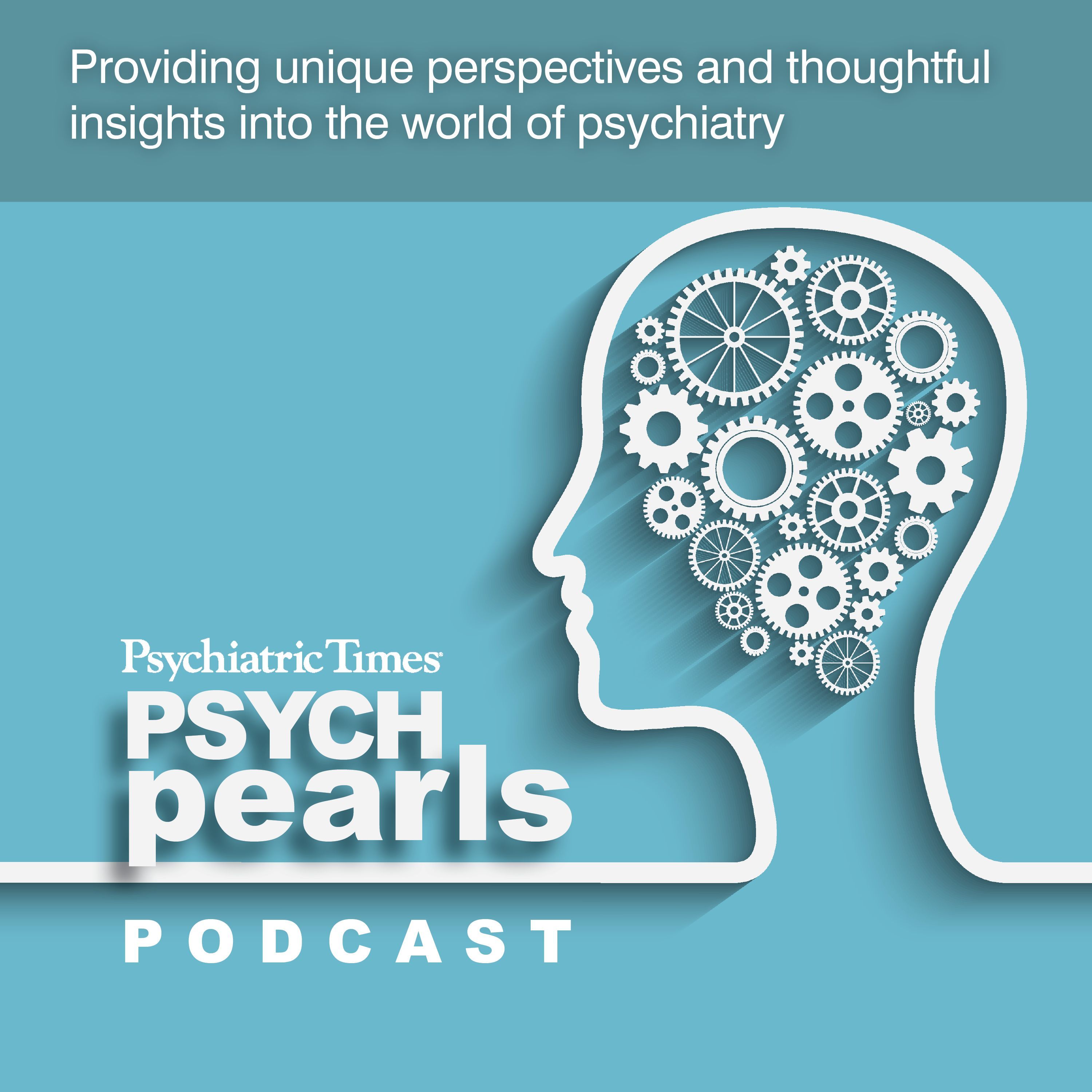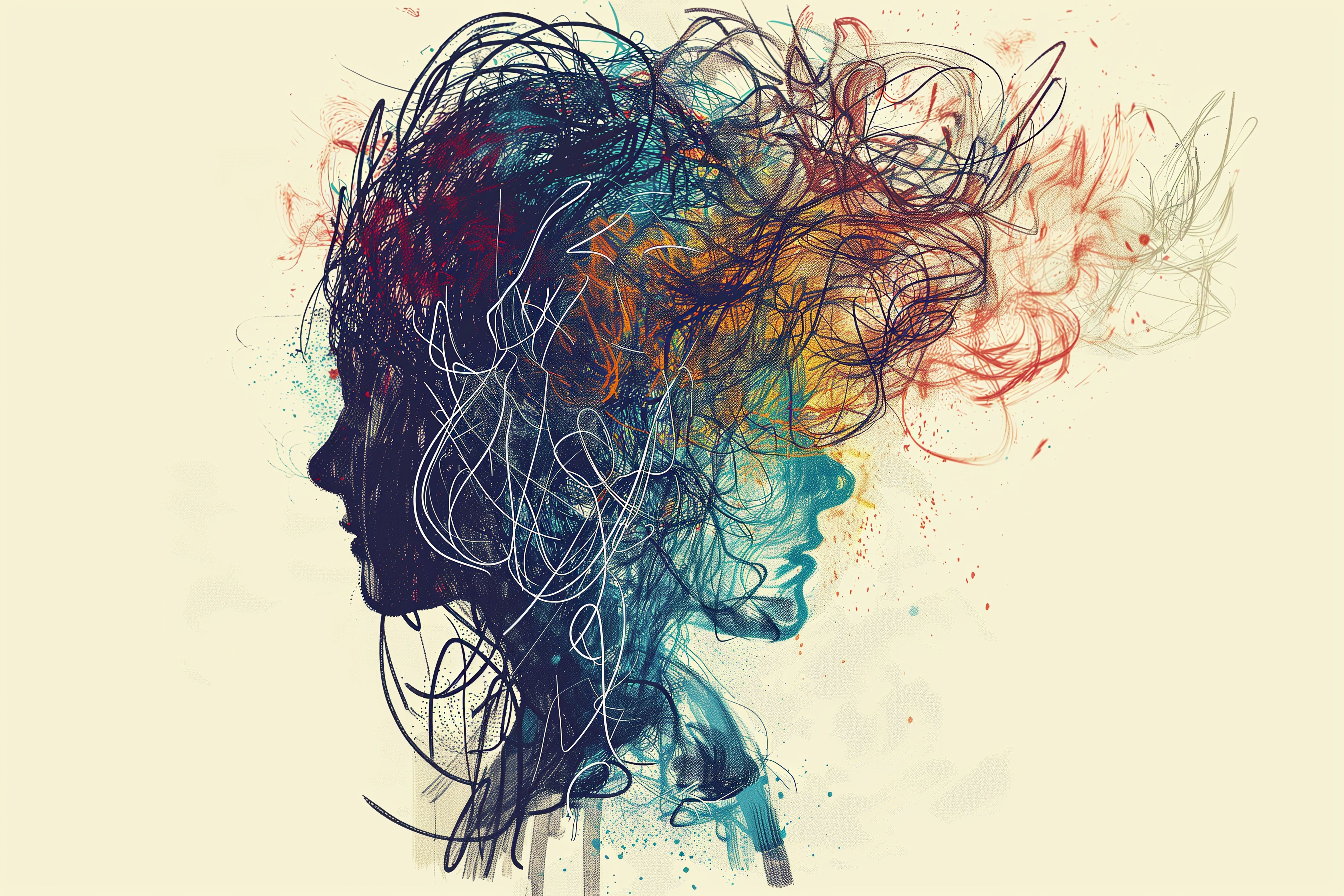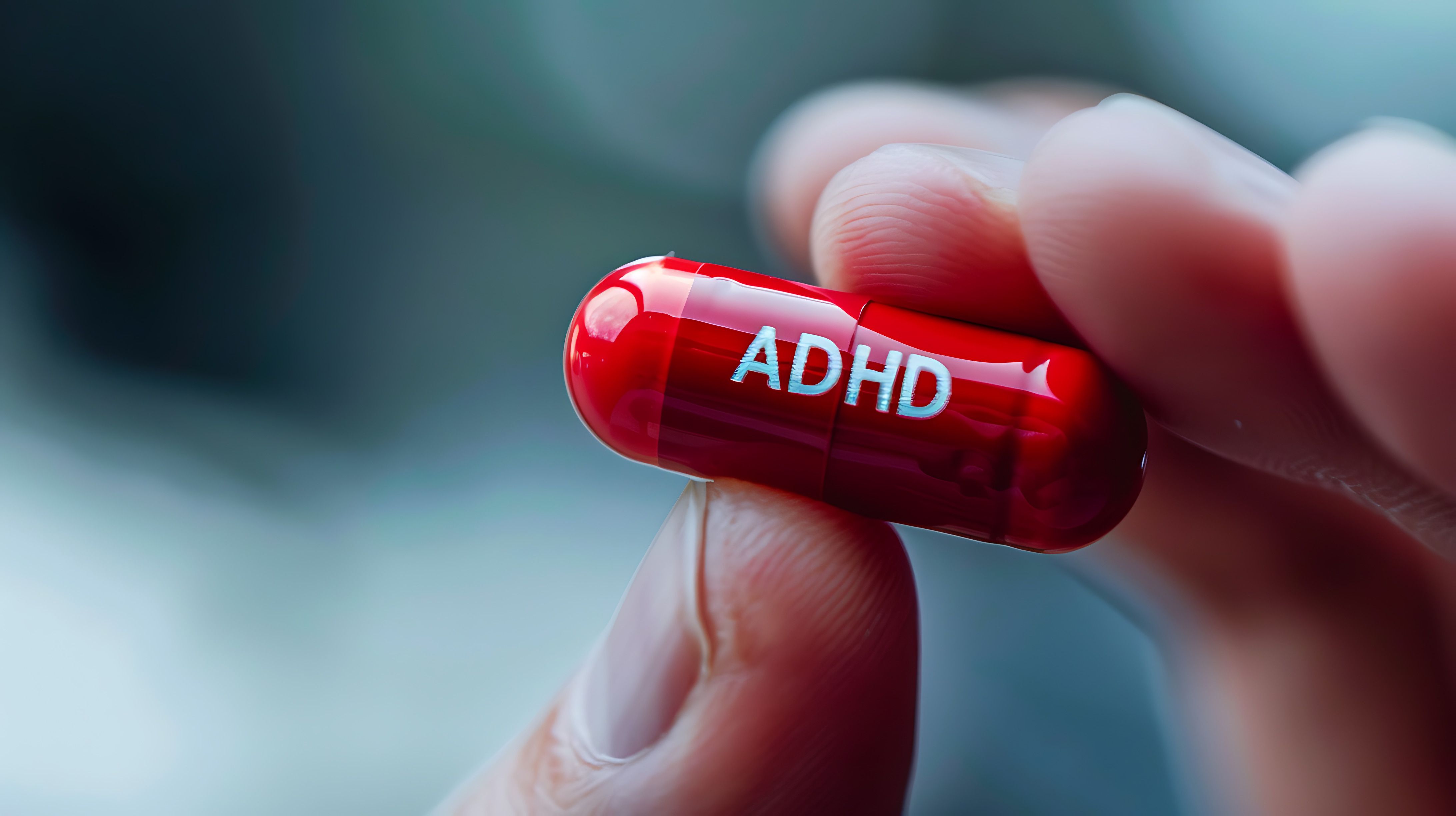Podcast
Treating ADHD in Children: Concerns, Controversies, Safety Measures
Author(s):
In this podcast, we speak with a psychiatrist about topics ranging from what prompted her to pursue a career in child psychiatry to treatment strategies and common conditions comorbid with ADHD.
PSYCHPEARLS
In this podcast, we speak with Dr. Leela R. Magavi, Regional Medical Director for Community Psychiatry, in Newport Beach, CA.
Transcript abbreviated and edited and clarity. Listen to the podcast for complete information. Identities of patients discussed are obscurred and do not point to any one individual. They are for illustrative purposes only. -Ed
Laurie Martin (LEM): Welcome, Dr. Magavi. Tell us about yourself.
Leela Magavi, MD: Thank you for inviting me to speak today. I am a child, adolescent, and adult psychiatrist and regional medical director for Community Psychiatry, a California-based company committed to providing affordable, compassionate and evidence-based care to individuals of all backgrounds. I completed my adult psychiatry residency at Georgetown University, and my child psychiatry fellowship at Johns Hopkins. I currently practice in Newport Beach, CA, but my patients reside in various parts of California, from San Francisco to San Diego. As Regional Medical Director, I have the opportunity to work closely with several physicians and clinicians practicing throughout Southern California. In my spare time, I enjoy watching movies, eating my husband’s amazing, home-cooked meals, and spending time with my parents and younger sister.
LEM: What prompted you to pursue a career in child psychiatry? And why do you think medical students and residents should consider pursuing this field?
Leela Magavi, MD: I would highly recommend that medical students and residents consider pursuing a career in child psychiatry. I thoroughly enjoy practicing child and adolescent psychiatry. Other than my unwavering love for children, the reasons are countless.
My father always says, “Everything you need to know you learned in kindergarten.” I always laugh, but I found truth in this statement throughout medical school and residency. I strive to comprehend the origin of patients’ fears. I have realized that many conflicts are rooted in people’s childhoods, and I focus on this during sessions. Lamentably, some patients have never received psychiatric care, although they desperately needed it. I hope to provide early, preventative care to as many children as I can, a privilege that I wholeheartedly embrace. My training in child and adolescent psychiatry has helped me provide better, comprehensive care for my adult patients. Furthermore, I enjoy the team approach warranted to help children and adolescents. When parents, teachers, physicians and members of the community come together, these children do get better, which is an irrefutably beautiful thing.
LEM: ADHD is used so casually in pop culture and the media, and in some areas of the country, having a child with ADHD is almost akin to having an Honors Student. What are your thoughts regarding this?
Leela Magavi, MD: ADHD, like many psychiatric disorders such as OCD and bipolar disorder, are used very loosely in day-to-day dialogue. You may be walking down the street, and overhear someone say, “My ADHD is so bad! I can’t stop scrolling through Instagram during my Zoom team meeting!” or someone else say “My mood is all over the place! I’m probably bipolar or something.” Many individuals have intermittent, waxing, and waning symptomatology, which does not cause any distress or decline in functionality. The truth is, all of us have times during which we experience inattentiveness. In fact, during this podcast, our listeners may have already lost their focus, or we may lose our train of thought, but this is simply normal human tendency, and it does not mean we have a clinical diagnosis such as ADHD. In training, it is important to learn and understand normal human behaviors and tendencies to avoid pathologizing normal human behavior or medicating unnecessarily.
LEM: How often do you see patients who don’t necessarily meet the diagnostic criteria of ADHD? Do they have other diagnoses, and if so what are these? How do you counsel these parents and patients and address these concerns?
Leela Magavi, MD: I enjoy evaluating and treating individuals with various psychiatric diagnoses, but particularly enjoy working with children and adults with autism, ADHD, mood and anxiety disorders. Many children present with a chief complaint of ADHD. Quite a few children and adolescents who carry a diagnosis of ADHD from prior assessments or appear to have symptoms of ADHD do not, in fact, have ADHD.
I have encountered many situations in which parents have unrealistic expectations. However, this is a product of systemic changes that have promoted a very competitive schooling atmosphere. It is no longer enough to earn straight A’s or ace the SATs. Let me give you an example. Mary comes home from school and needs to complete a few hours of homework and studying followed by swim practice followed by piano practice followed by a few more homework assignments. Mary repeats this schedule on a daily basis, and becomes demoralized and frustrated. She begins to avoid her friends and family. Her inattentiveness becomes evident to her parents and teachers, and her grades begin to plummet, and her school refers her family to me. In situations like these, I discuss expectations and counsel the family to support the child or teen’s wellness. Mary may be demoralized or depressed. Providing a stimulant may only exacerbate her anxiety, and thereby, worsen her depression. The treatment would involve therapy and possibly an SSRI if warranted. This may even involve redistributing tasks, taking a break from an extracurricular activity, and prioritizing sleep and wellness activities.
LEM: What are some other prevalent disorders you often see?
Leela Magavi, MD: Oppositional defiant disorder is a prevalent condition. For example, Charlie, presents with verbal aggression and sometimes physical aggression when his father asks him to turn the television off or when his baseball coach gives him feedback. Charlie fares well in school, but is very oppositional toward multiple authority figures. Charlie would benefit from behavioral therapy or parent management training for oppositional defiant disorder. Charlie does not have ADHD, and a medicine would not be helpful. In such cases, when I have shared this information with patients, they have sometimes expressed sadness or frustration about the diagnosis.
Many parents present to me hoping their children have ADHD when they do not. You may wonder why they would hope this were the case. Parents, understandably, can experience burnout and fatigue, and look to us physicians to expedite change and provide help. Therapy can take time to work, and medicine sometimes seems like a quick fix. I have open and candid discussions with parents to set expectations and reiterate that there is no magic pill or instant solution.
What I explain to parents is that medicines do not change behavior. Likewise, medicines do not make homework seem more interesting than Fortnite or Call of Duty. Medicine does not simply result in improved grades. Overall, it is pivotal that we have open conversations, and answer questions about the avenues of treatment and the risk of medicating when medication is not warranted.
LEM: What can you say about anxiety in children?
Leela Magavi, MD: Anxiety is often misdiagnosed as ADHD as the features overlap. In fact, anxiety is what child and adult psychiatrists see the most in clinic. I evaluate individuals of all ages, and most of my patients see me for anxiety. Anxiety can present as inattentiveness, restlessness, impulsivity and irritability. For example, Sheila presents with restlessness and perfectionistic tendencies. She procrastinates and puts off tasks due to fear of failure. She appears fidgety and nervous in class, and asks her teachers and parents to repeat themselves.
Sheila has generalized anxiety disorder. Once her anxiety is treated, these symptoms resolve, and her school performance improves. Other kids like Sheila may present with concerns about ADHD, but actually are experiencing symptoms of depression, which can cause increased processing speed and impaired working memory, and thus, affect cognition and academic performance. Similarly, after treating depression, inattentiveness and what appeared to be ADHD symptoms, improve.
LEM: What are some common comorbidities, and how would you tackle these concerns in the clinic?
Leela Magavi, MD: ADHD often presents with various comorbid disorders inclusive of anxiety, depression and bipolar disorder. In these cases, once the mood and anxiety disorder is stabilized, and if ADHD symptoms continue to impair functionality, a medication for ADHD can be started. In cases where kids have ADHD and ODD, kids would benefit from a combination of therapy and stimulants. In cases where kids have ADHD and tic disorder, they may benefit from habit reversal therapy, an alpha agonist for tics, impulsivity and hyperactivity, and possibly a stimulant as well.
LEM: Any take-home messages about how ADHD presents in real-world experience that show how treatment can make a significant difference in a child’s life?
Leela Magavi, MD: The take-home is when a child truly has ADHD and he or she receives treatment, the results are evident and life-changing for everyone involved. I have had the invaluable opportunity to treat Mark, a seven-year-old boy suffering from ADHD. During play therapy, I have learned that the reason he often gets angry at school is because he is tired of other children teasing him about “not reading good.” During another session, he used toy cars to share his goal with me, exclaiming, “I want to be a police officer one day!” As Mark improved with weekly therapy and treatment with Focalin extended release or dexmethylphenidate, a stimulant medication, he gained confidence. This experience was particularly memorable and rewarding.
LEM: Older adolescents and young adults have been known to abuse ADHD medications to help improve their studying stamina and grades. Besides being illegal, what are some of the dangers associated with this practice?
Leela Magavi, MD: Each year, academic expectations build. The competition is real and appears to be increasing relentlessly. It is harder and harder to get into colleges. Even kindergarten and first grade seem harder than they ever used to be. Teens and young adults often use their peers’ ADHD medications, or illegally purchase them to gain a competitive advantage, or use them recreationally. Some individuals even take stimulants solely to stay up later because they have so much to finish and so little time.
The truth of the matter is, when someone does not have ADHD, they may not benefit significantly from taking a stimulant. They may feel more energetic, but the data from pilot studies have suggested that cognition itself may not improve. We do not completely understand the dangers associated with use of stimulants in someone who does not have ADHD as ethical concerns limit our ability to study this. Some of my patients who have admitted to using stimulants without a diagnosis of ADHD have experienced concerns including weight loss, anxiety, depression, psychosis, insomnia, hypertension, and other cardiac concerns. I want to encourage all listeners to spread awareness and encourage friends and loved ones to be evaluated by a physician prior to trying medications.
Stimulants can cause myocardial infarction, cardiomyopathy, and even sudden death. Although the risk is low, it is not worth taking. Patients with a personal or family history of cardiac events may require further work-up prior to initiating medications. Due to addiction concerns, some parents do not want their children who have ADHD to take medications. As opposed to those who do not have ADHD, for kids who do have ADHD, we have large, validated studies which indicate the significant and helpful effect of stimulants. Long-term studies suggest that treating ADHD reduces unemployment, divorce and addiction concerns longitudinally.
LEM: ADHD treatment options have come a long, and now include various formulations, long-acting dosing, patches, and even a video interface. How should clinicians decide what medications to prescribe to their patients?
Leela Magavi, MD: It is important to comprehensively assess the child and learn about his or her genetic predisposition, temperament, behavior and life story prior to selecting a medication. There are many options, and new agents continue to gain approval. For children who are young and primarily impulsive and hyperactive, and if really warranted due to functional impairment, I may consider using an alpha agonist such as clonidine extended release also known as Kapvay, or guanfacine extended release also known as Intuniv. These are blood pressure medications. I often use these alongside stimulants as it allows the use of lower stimulant doses.
Alpha agonists do not target inattention as well as stimulants do, and I explain this to parents who prefer nonstimulant options. Other nonstimulant options are Wellbutrin also known as bupropion, which is an antidepressant, and atomoxetine also known as Strattera, which is a selective norepinephrine reuptake inhibitor, also helpful for anxiety. The common stimulant families are methylphenidates and amphetamines. I always start with methylphenidates, and then transition to amphetamines if warranted due to side effect profiles. I use long-acting agents and add on immediate release if warranted for longer duration of action. Patches, liquid formulations and some capsules are helpful when kids have difficulty swallowing. Lisdexamfetamine or Vyvanse is an option for those who have a history of substance use as this medication is metabolized differently, and decreases addiction potential.
I think it’s wonderful that we are learning more and more about the brain and medications that could help these children. I’m very grateful to my colleagues who are partaking in research and helping us answer these questions. Most recently, which I am delighted to share with parents and listeners, we have learned that a videogame called Endeavor Rx, has been FDA approved for kids between ages 8 and 12 who have been diagnosed with ADHD. For those who are interested, you may join the online waitlist, made available by the developing company, Akili Interactive.
LEM: Are there concrete tools or scales to help diagnose ADHD?
Leela Magavi, MD: ADHD is a clinical diagnosis and symptoms need to be present in more than one setting. Scales and tools such as the Child Behavior Checklist, Conners-Wells, Vanderbilt, Swanson Nolan and Pelham are helpful, but not necessary for diagnosis. I view them as additional pieces of information, and occasionally, to monitor progress.
I personally use the Vanderbilt scale most often. I find it interesting to ask mom and dad to complete the Vanderbilt scale independently and compare their responses with the teachers. When the numbers align and are high, this is more indicative of ADHD. If the teacher’s scores are very high, but the parents’ scores are low, this may mean that the teacher needs more help in the classroom setting due to high student to teacher ratio, among other things. If the teacher’s scores are low, and the parents’ scores are high, it may mean that the child is exhibiting behavioral concerns at home for particular reasons. Sometimes, only one parent scores high, which may be due to a mismatch in temperament and personality traits.
LEM: Are CT, PET, EEG, and MRI reliable diagnostic tools for children?
Leela Magavi, MD: Brain imaging is not warranted for the diagnosis of ADHD. I rarely ever order it unless necessary for another reason. I may consider an EEG or MRI if I am concerned about epilepsy presenting like ADHD or absence seizures during which the child may appear to be staring into space when they are in fact having a seizure. Brain imaging may also be helpful in post-concussion syndrome in which individuals may have difficulty with inattentiveness and mental fatigue, and may benefit from a stimulant although they do not have ADHD.
Nevertheless, brain imaging has helped us learn a lot about ADHD. Converging evidence from various imaging studies has helped us assess differences in brain volume, diffusion properties of white matter tracts, and cortical features in typically developing children compared to those with ADHD. Psychoradiology is a developing field and may help guide our treatment planning in the future.
LEM: Do you transition patients out of your care to a general psychiatrist?
Leela Magavi, MD: Some child psychiatrists only evaluate and treat children, but I treat individuals of all ages and enjoy this diversity. I provide a mixture of medication management and therapy, and establish strong bonds with my patients. I always tell my adolescents that there’s no magic button that turns on and makes an eighteen-year-old instantly an adult. Every individual transitions into adulthood at a different pace. Being an adult is tough, and I evaluate patients at all ages who struggle with this transition. For this reason, I do not think child psychiatrists necessarily need to transition their patients to an adult psychiatrist.
LEM: We used to hear that children “grow out of” ADHD. Now, data show that adults can and do have the disorder. Is it possible to outgrow ADHD?
Leela Magavi, MD: ADHD is essentially a neurodevelopmental disorder, which can affect individuals at any age. It is chronic in nature, but presentations vary at different life stages. The frontal lobe is the last to develop and mature, and there are many changes that occur with brain plasticity. For example, children display a decrease in symptoms of hyperactivity and impulsivity as they mature. Many children with ADHD still have the condition as adults, and are highly susceptible to other psychiatric disorders. I do evaluate adults who have never been diagnosed with ADHD as children who present to see me for the first time. Some of them experience impulsivity and have difficulty with relationships and work for this reason. Others who were diagnosed as children have relayed that their ADHD symptoms have evolved over time. It is pivotal for physicians to titrate down on medications as warranted and consider discontinuing medication if individuals are faring well off of them and when symptoms no longer affect functionality. In these cases, I like to take a conservative approach and recommend daily exercise, sleep hygiene techniques, and other behavioral strategies.
Finally, every individual with ADHD whom I have had the pleasure of treating has something special to offer. For my kids who ask me if this diagnosis means they are not smart, I remind them that this is not the case. Albert Einstein was suspected to have ADHD and as were other notable people, such as Walt Disney, and Michael Jordan. It is an honor to help kids struggling with ADHD as they grow to recognize their strengths and reach their full potential.
Newsletter
Receive trusted psychiatric news, expert analysis, and clinical insights — subscribe today to support your practice and your patients.






